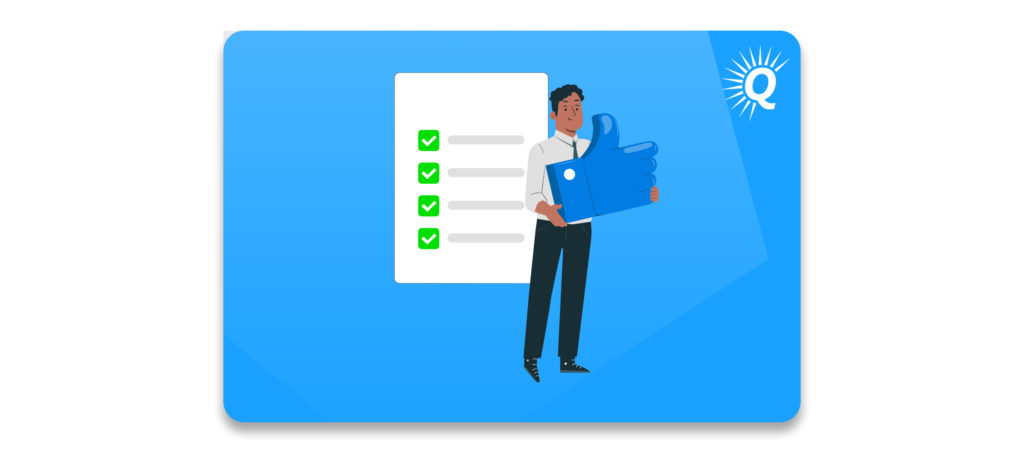Topics:
Never Miss a Beat - Get Updates Direct to Your Inbox
FILTER:


Selling a Small Business: How To Sell an Online Small Business in 10 Steps
By Quiet Light


In the world of online business acquisitions, small businesses offer distinct advantages to many buyers. You have poured your heart and soul into your online small business and are looking to make a change. If that’s where you’re at, you may be thinking about capitalizing on the opportunities available within the thriving acquisition marketplace.
When selling your online small business, you want to maximize profit, keep the selling process as smooth as possible, and ensure your beloved business lands in the right hands. Selling a small business is a complex endeavor that requires specific resources, processes, and expertise.
“When selling your online small business, you want to maximize profit, keep the selling process as smooth as possible, and ensure your beloved business lands in the right hands.”
In this article, we address everything you need to know about how to sell a small business, including:
- Online small business valuation
- Determining the optimal timing
- Evaluating deals
- Closing the deal
- Making a successful exit
How to Sell Your Online Small Business
When selling your online small business, there are several important steps. These include:
- Preparing to sell your online small business
- Valuing your online small business
- Creating your marketing package
- Listing your online small business for sale
- Communicating with potential buyers
- Receiving a letter of intent
- Signing the asset purchase agreement
- Conducting due diligence
- Closing the deal
- Transitioning and training
10 Steps To Selling A Small Business
Prepare to Sell Your Small Business
You have likely invested significant time, money, and energy in building your online small business. It is a good idea to plan ahead to maximize your business’s value and create a smooth, expeditious sale.


To prepare your online small business for sale, it’s best to:
- Identify growth opportunities
- Reduce or eliminate risks
- Ensure that all of your financial statements are detailed, up to date, and accurate
- Implement sound documentation practices
- Automate core business processes
- Make sure your business is relatively easy to operate
Each of these points is covered in detail in the following step.
Value Your Small Business
Valuing your small business is a critical part of the selling process. In general, it is a good idea to receive a business valuation at least six to twelve months before you want to sell.
There is a lot that goes into valuing a business. It is a good idea to work with a qualified business Advisor. They can examine your business’s financial and other key details to let you know the strengths, weaknesses, and opportunities you are facing so that you can make the most informed decisions.


During the free valuation process, an Advisor meets with you to examine every aspect of your small business with a critical lens. The Advisor looks closely at the business’s four pillars of value: growth, risk, transferability, and documentation. The status of these four principles informs the creation of a strategic add back schedule to enhance the value of your business. The Advisor delivers relentlessly honest advice that is in the best interest of your business.
If you are not yet happy with the value of your business, it is ideal to take the time to implement strategies before proceeding with a sale. When your business is happy with the valuation, you can proceed to the following steps.
Create Your Marketing Package
Potential buyers need to understand your business in order to make an informed decision. Potential buyers need all of the information and key details relevant to your online small business. A qualified Advisor can assist you in creating an effective and comprehensive marketing package.
Your online small business’s marketing package must include:
- Detailed profit and loss statements
- An add back schedule
- A complete list of the products and services you offer
- The monetization strategy
- A description of the owner’s responsibilities
- A detailed explanation of the strengths and weaknesses of the business
All of these elements are essential for communicating the important details of your business transparently. To portray your business in the best and most truthful light, be up front about any deficiencies of your business.


“Require potential buyers to sign a confidentiality agreement before accessing your marketing package because these documents are filled with detailed and proprietary information.”
Don’t miss out on this important tip: Require potential buyers to sign a confidentiality agreement before accessing your marketing package because these documents are filled with detailed and proprietary information.
List Your Small Business for Sale
When your marketing package is complete, it is time to list your business for sale. If you are partnering with a qualified Advisor, you can access their large network of qualified buyers who are serious about acquiring business.
Communicate with Potential Buyers
Although your marketing package provides buyers with a clear and extensive understanding of your online small business, serious potential buyers will still have a multitude of questions.
If you work with a qualified Advisor, they can serve as the gatekeeper to ensure you receive inquiries from only the most qualified buyers.


Phone calls with potential buyers are excellent opportunities for potential buyers to dig deeper into your business operators and for you to evaluate different contenders. Make an effort to cultivate genuine connections by providing open and honest answers and showcasing your personality. This will help you make sure you are selling your beloved small business to the right person.
“Make an effort to cultivate genuine connections by providing open and honest answers and showcasing your personality.”
You will proceed to the next step when things go well at this pivotal stage.
Receive a Letter of Intent
A Letter of Intent (LOI) is a business acquisition offer that describes the key details like purchase price, deal terms, transferable assets, closing date, and more. You may be lucky enough to receive an LOI that immediately satisfies your goals, or you may need to negotiate in order to secure more favorable terms.
Sign the Asset Purchase Agreement
The Asset Purchase Agreement (APA) is a legally binding document that includes all of the details about the deal. The APA is usually based on the LOI, but additional details may be included to provide both parties with legal protection.
Conduct Due Diligence
In order to conduct due diligence, the buyer will seek to verify that all of the business information you have provided is accurate, true, and complete. You will likely need to provide the buyer with third-party reports to verify your business’s financials and key information.


To smooth and expedite this process, you can prepare the reports in advance. You should provide any and all third-party documentation to verify net profit and any other claims. Many business owners create a due diligence folder that includes items such as:
- Financial statements
- Employee contracts
- Google analytics and Google trends reports
- Ad account reports
- Product and inventory reports
Close the Deal
Now that you have accomplished many important steps, it is time to close the deal.


The buyer must transfer the purchase funds to an escrow account held by an escrow agent. Once the escrow agent receives the funds, you can transfer the assets listed in the APA to the buyer.
When the buyer confirms they have received all of the assets detailed in the APA, the escrow agent releases the purchase funds to you.
Transition and Train
Even though the deal is closed, you still have some responsibilities to fulfill. To facilitate a smooth transition, you will likely need to train and advise the new online small business owner.


The length and requirements of the transition and training period are determined by the terms of the sale and the needs of the buyer. If the buyer is experienced with operating small online businesses, the process might be simple and quick. If the buyer is unfamiliar with the operations or the operations are particularly complicated, the training and transition process may be more extensive.
Common FAQs Around Selling a Small Business
Selling a small business can be a big endeavor. Here are some of the questions that small business owners commonly ask about selling their business.
How do you determine the selling price of a small business?
The selling price of your small business is determined by the value of your business. A qualified Advisor can assist you in assessing the valuation metrics that apply to your business.
Does it cost money to sell a small business?
If you work with a qualified Advisor to sell your small business, you do need to pay a success fee. However, the increased purchase price, favorable deal terms, and confidence will more than compensate successful small businesses for the fee.
Can you sell a business idea?
Most buyers will only pay for a business that is generating profit. That being said, business ideas can be highly valuable. Before sharing any information about your products, services, or ideas, protect yourself with a nondisclosure agreement.
How do you sell an online business?
To sell an online business, you first need to create a desirable business. This includes optimizing the value of your online small business by attending to risk mitigation, growth prospects, transferability, and verifiability.
“To sell an online business, you first need to create a desirable business.”
Make sure that your financials are in order and conduct yourself with integrity and professionalism throughout the entire selling process. A trusted, qualified Advisor can help with the process of selling your online business.
Get Advice On Selling Your Small Business from Quiet Light
Quiet Light is one of the most successful M&A advisors in the marketplace, with a commitment to continual improvement. To date, Quiet Light has been trusted with over 600 online business sales and over $300,000,000 in total transaction value. To get advice on selling your small business, request a free valuation from Quiet Light today.





